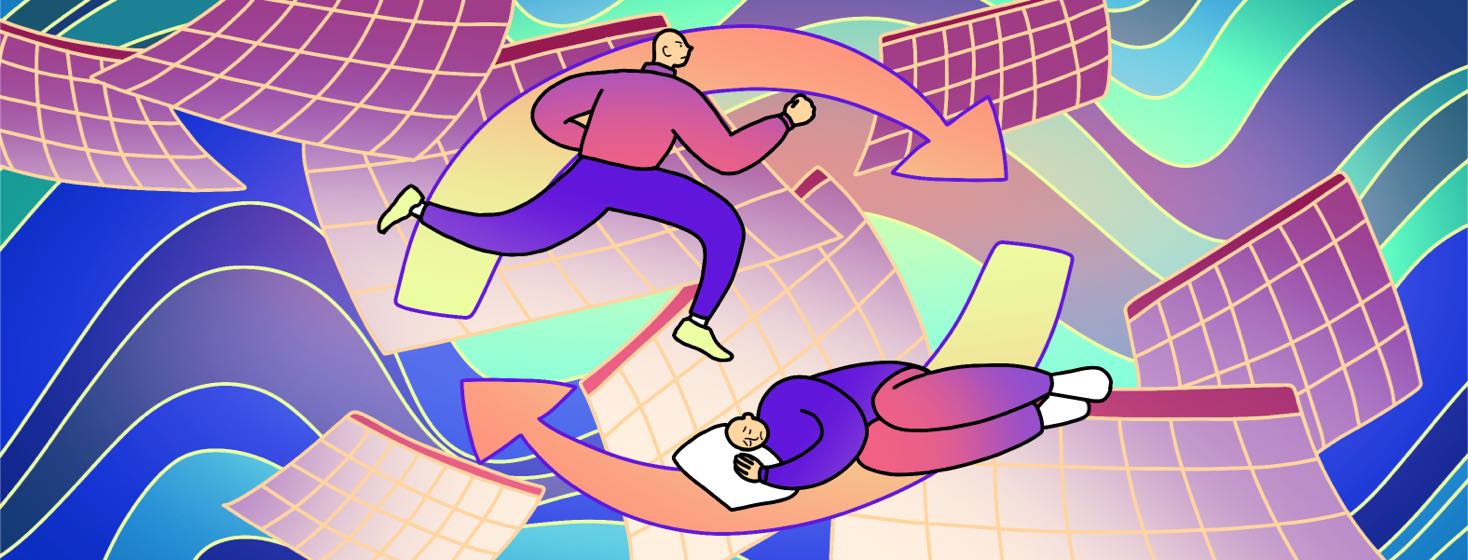Fatigue and Androgen Deprivation Therapy (ADT)
Androgen deprivation therapy (ADT) is, thankfully, keeping me alive. However, the side effects have been difficult to cope with, and one of those is fatigue.
What ADT-induced fatigue feels like
It’s difficult to describe the fatigue caused by cancer treatment. In my own case, the removal of male hormone testosterone. We need male hormone to drive numerous aspects of our lives, from the drive to get out of bed in the morning right through to our sex drive. Removing that testosterone can remove our drive, but it doesn’t remove our drive to do things, to achieve things.
When I say to people that I’m suffering from fatigue induced by my cancer treatment, the response that I usually get is, “Well go and have a sleep.” Fatigue does not always mean tiredness though, and I usually illustrate it by saying that it’s like when you’ve got a bad cold or the flu. You just want to go and flop in a corner. You don’t necessarily want to have a sleep.
However, fatigue does impact many aspects of day-to-day life. If the drive to get out of bed has gone, then so has the drive to do everything else. We need to take great care that we don’t overdo things, as we know that that makes the fatigues worse. But on the other hand, we want to live life to the fullest and do all the fun things that we used to enjoy pre-cancer.
The sacrifices fatigue forces us to make
A friend described her views on fatigue as, "it’s a constant balancing act between pushing yourself to achieve the things you used to do and being kind to yourself when your body is just crying out for a rest.” I think that captures the sacrifices that we have to make, because we are living with cancer treatment-induced fatigue.
We simply can’t do what we used to be able to do. I said in a recent interview that I can do everything that I used to be able to do, but I can’t do it as hard, as fast or for as long.
Another friend says that she copes with fatigue by taking lots of naps, and there is nothing wrong with the occasional power nap. Although I find that they make me feel worse for a short while after I wake up.
Adapting your lifestyle
You come to recognize that the fatigue comes in cycles. I have 12 weekly ADT injections and find that they knock me for six for a couple of days. I also have 12 weekly Zometa (Zoledronic Acid) infusions to stave off further bone degradation, and they have a wicked impact with flu-like symptoms; the whole body aches, and you feel totally drained for 4 or 5 days.
You have to adapt your lifestyle to these treatment cycles. It really is okay to do a bit less at different stages of treatment cycles. For example, if you are having chemo every three weeks, you may find that rest is best in the first week after chemo. But then maybe in week 2, you can do a bit more and then resume near normal activity in week 3.
How I cope
I take a daily dose of Abiraterone (Zytiga) at 7 a.m. each morning and find that two hours later I feel shattered. I go and have a 20-minute lie-down on the bed, but then I force myself to put my trainers on and do some exercise, usually a run. It seems completely counterintuitive, but afterwards I feel reinvigorated by the endorphin rush.
I’ll close by posing these questions:
How would you describe fatigue? How has fatigue affected you? What do you do to help deal with fatigue?

Join the conversation